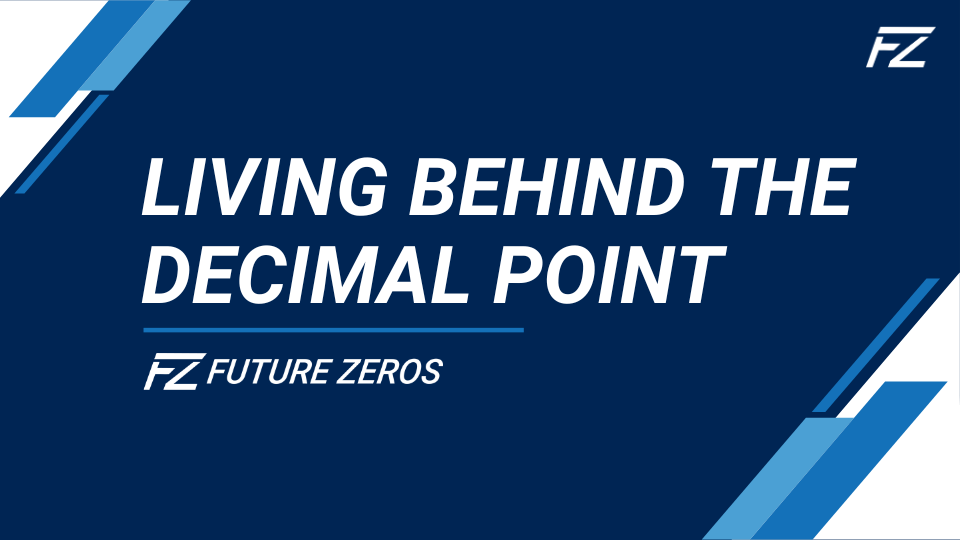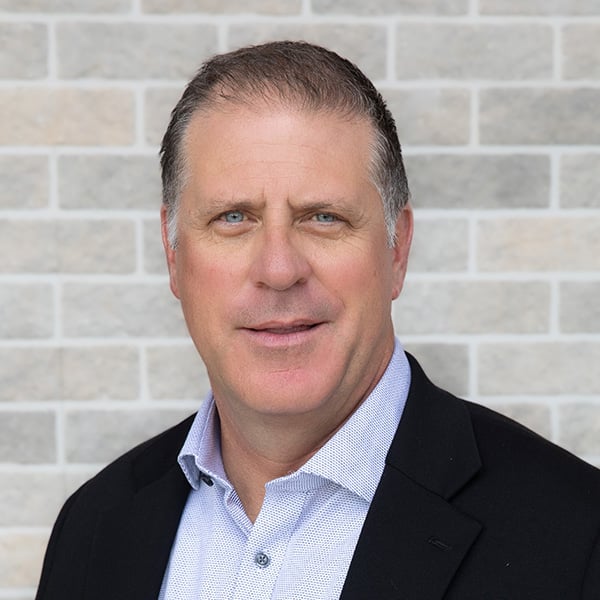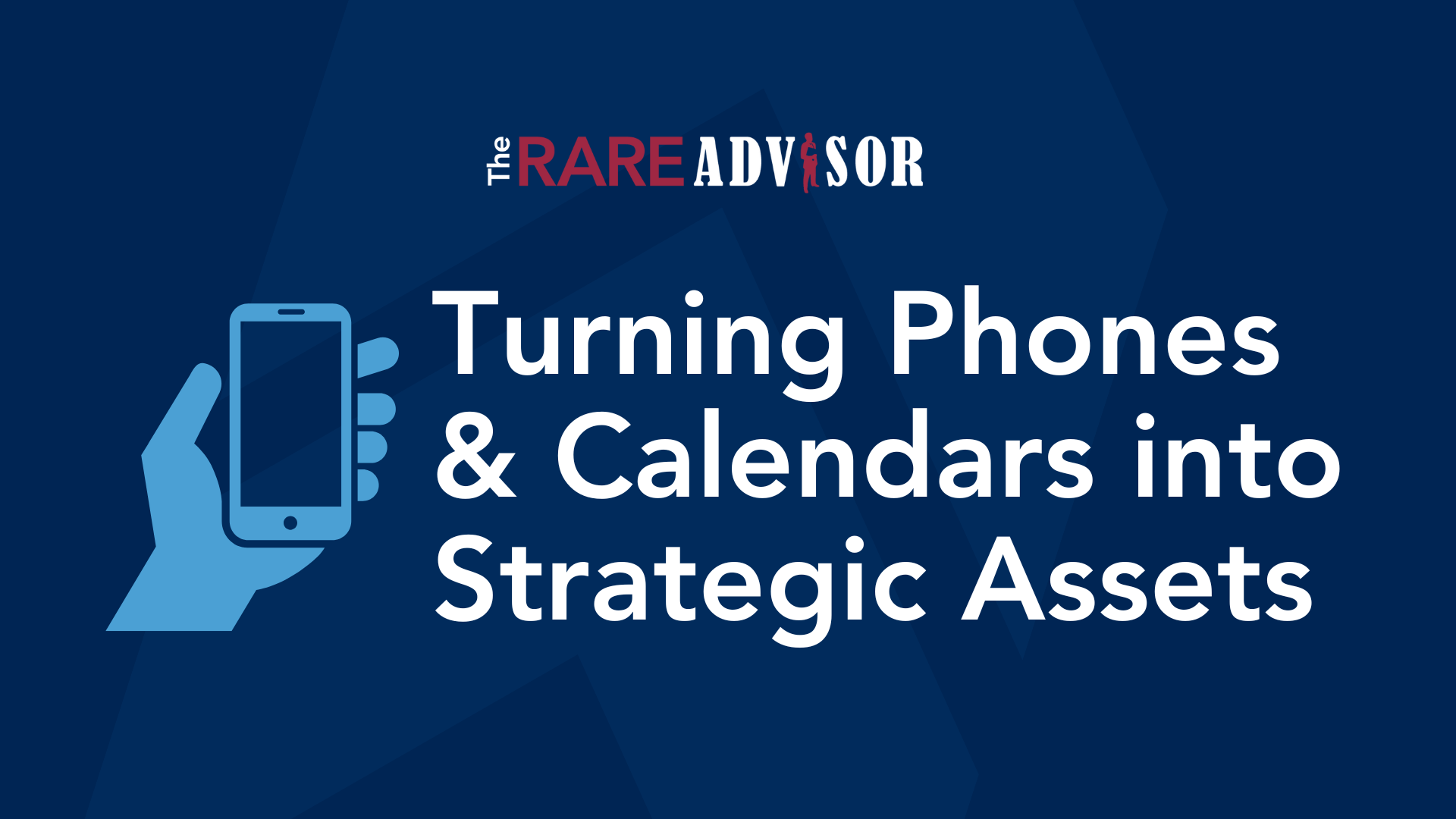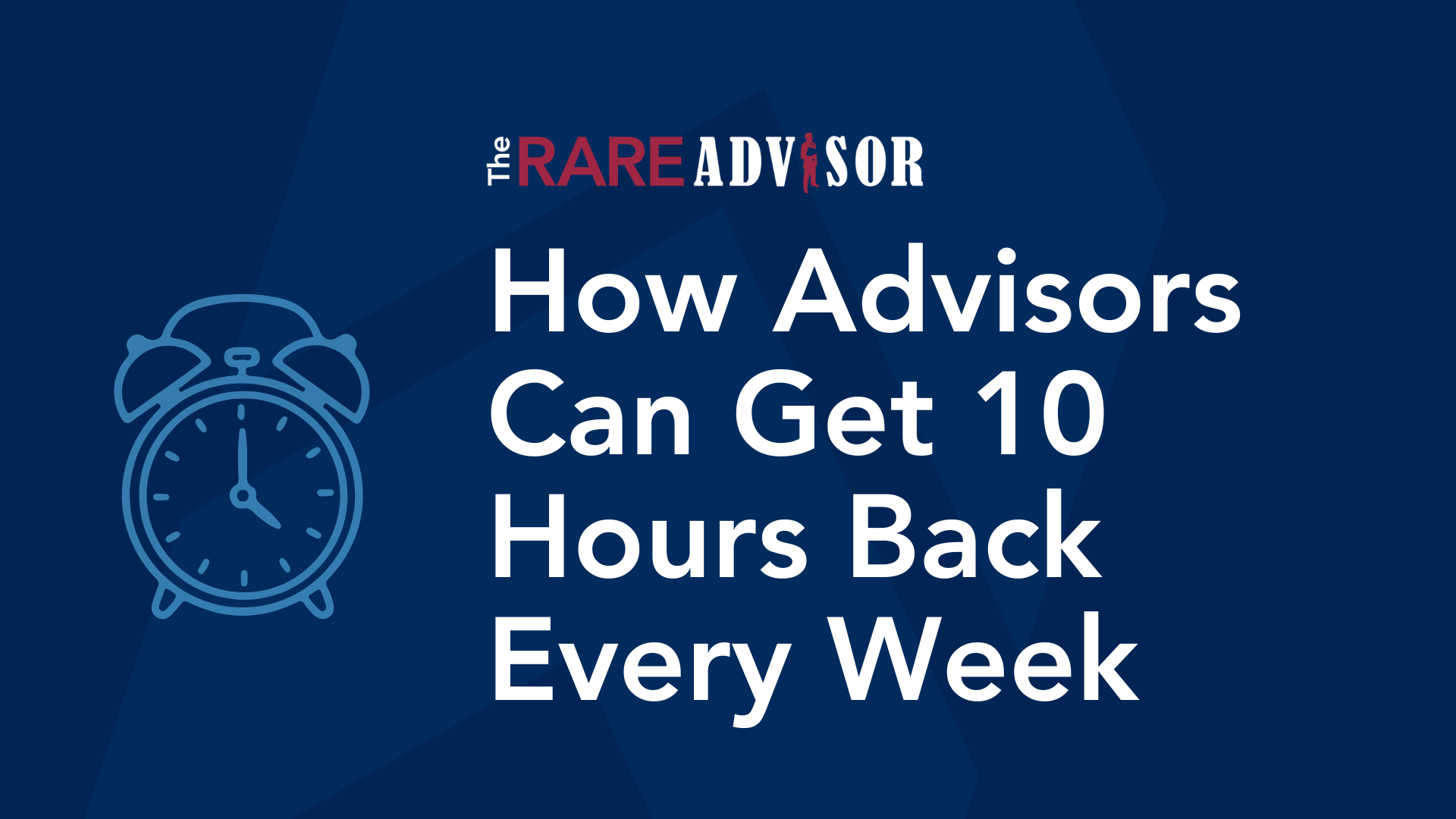Living Behind the Decimal Point

Being a big fish in a small pond vs. being a small cog in a big engine – they are both opposite ends of the same spectrum and it can be unbelievably dangerous for the future growth, performance, and ultimate value of your business. In this episode of Future Zeros, we’ll talk about what it means to live behind the decimal point, how dangerous that is, and the things you need to consider.
Have you ever experienced living behind the decimal point? It's a phrase I kind of coined off the cuff talking to a large advisor group that was kicking the tires here on joining USA Financial. As I'm talking to the CEO of that company and as he's describing the current environment they're in (they're in one of the mega platforms out there), they're less than just a number. They're literally living behind the decimal point. And because of that, their business is faltering. Because, just like we learned through COVID, when you get isolation, there's all kinds of negative emotional effects that come with that. Well, from a business perspective, from a CEO perspective, from a business owner perspective, there's kind of this parallel effect that can take place where, if you're dealing on a daily basis in your business in an environment where you feel like you're behind the decimal point and you're just a number, there's all kinds of issues that impact your business.
So, just like a person can end up with decreased self worth and identity, increased feelings of helplessness, emotional disconnection, increased stress and anxiety, motivational decline, cognitive dissonance, burnout, etc., when your business is just a number, your business experiences those things as well. Just like mentally being another number can cause emotional numbness, decreased motivation, anxiety, and stress can can kill performance for you as an individual, it does the same thing with a business. Why do I mention such things? Well, twofold. Number one, some of the mega platforms out there can be dangerous for your business because you end up in a situation where you're behind the decimal point. Just a quick ChatGPT search told me that Raymond James has 8,800 advisors, Cetera has 12,000 advisors, Osaic has 11,600 advisors, and LPL has 22,000 advisors. You get into the world of IMOs and it can get even worse than that. Now, for some people, they want some anonymity, but they're usually the small, insignificant producers that want that. If you're a good producer, and I'm not talking you have to be one of the largest in the country, if you're just a good, solid producer, and you want to grow, you have to have connectivity with the platform and the people running that group. And sometimes it's important to just know you have people you can reach out to, that you can count on. Maybe the fact that you know you have the phone number, the private emails, and mobile numbers for the people who matter, knowing that you can sit down and talk to people, or there's a coaching program that's put together specifically to help you get through the situations that matter inside of your business, that customization, that personal touch, those are things that we strive to never lose at USA Financial. That's just our business model.
But why do I bring this up on Future Zeros? The reason is because whenever you're talking about mergers, acquisition, succession, transition, taking chips off the table, all these various topics that we talk about at Future Zeros, whenever you're doing that, a lot of people think it's all about the math. And the math is important, don't get me wrong - but it's really all about the culture. If you're not operating in a culture that fits your business, your business will never be successful. That's true not only when you're running it on a day to day basis, but it's equally true in the transition process. What is it going to look like if I take some chips off the table and I'm going to be partnering with this group for the next five years? I need to have a cultural fit so that I can grow it faster in the next five years than I did the last five years, and I can make the second bite of my apple bigger than the first bite. That's just one example, but you can dive deep on all of this. So it's important to understand, what are you attaching yourself to? What are you involving your business in when you join a platform, or when you cut a deal on some kind of a transaction? We help people walk through all of those steps. We do all kinds of coaching and consulting for groups who are trying to navigate that piece of their practice. Because, again, keep in mind, the most valuable asset you own is likely the business that you're running, and that's a unique position. Most Americans don't have that as their number one asset, but since you do, these are vitally important topics.
--
Future Zeros is a series for financial advisors who want to increase the value of their firm today and in the future. Your host, Mike Walters (CEO of USA Financial), digs into the nuances of mergers, acquisitions, and succession within the financial advice industry to help you add “future zeros” to your bottom line. Whether you are nearing an exit, just entering the business, or in the middle of building your practice, the Future Zeros series will provide thoughtful insights into how to grow your practice the right way in order to maximize your future value and minimize the risk associated with doing so.
Author Info

Mike Walters is the Chief Executive Officer (CEO) of USA Financial, leading the firm since its inception in 1988. Mike is committed to...
Related Posts

Access by Design: Turning Phones and Calendars into Strategic Assets
In this episode of The RARE Advisor, host Aaron Grady and practice management consultant Allan Oehrlein continue their discussion on time allocation by exploring what comes next: operationalizing structure across the entire advisory team. They break down why the phone is the “front door” to the firm and the calendar is the “engine room,” and how elite practices use standardized phone scripts, the strategic power of the word “unavailable,” intentional scheduling rules, and team empowerment to build consistency, capacity, and trust. Aaron and Allan outline how designed access—not unlimited access—creates scalability and a stronger client experience, while reducing reactivity, burnout, and advisor bottlenecks. They also offer practical challenges advisors can implement immediately to redesign their phone and scheduling processes in ways that elevate both team culture and enterprise value.

The Psychology Behind Your CTA: Why Prospects Don’t Click “Book a Call”
In this episode of Financial Advisor Marketing Playbook, Mark Mersman breaks down the real psychological barriers that stop prospects from clicking “book a call” on an advisor’s website—and how small language and design changes can dramatically improve conversions. You’ll learn practical, compliant fixes including softer CTA language, expectation statements, empathy‑based messaging, simplified design, and reassurance techniques that lower emotional friction. If you want a website that encourages prospects to take the first step confidently, this episode delivers actionable guidance advisors can implement immediately.

How Advisors Can Get 10 Hours Back Every Week
In this episode of The RARE Advisor, host Aaron Grady and USA Financial Pareto coach and Practice Management Consultant Allan Oehrlein dive into time allocation as a core lever for advisory success. They unpack the biggest time drains—email, unsolicited calls, and open-door interruptions—and lay out a practical framework for calendar rebalancing that starts with personal time, management time, client appointments, dedicated communications windows, “work on the business” time, and high-impact growth activities. With real-world stories showing how advisors shift from reactive days to structured weeks (and even reclaim Fridays), Aaron and Allan share easy-to-implement tips: color coding calendars, scheduling buffers, daily huddles, and call/appointment protocols. If you’re ready to audit your calendar, define your ideal week, and create structure that truly liberates your practice, this conversation is your next step.

Access by Design: Turning Phones and Calendars into Strategic Assets
In this episode of The RARE Advisor, host Aaron Grady and practice management consultant Allan Oehrlein continue their discussion on time allocation by exploring what comes next: operationalizing structure across the entire advisory team. They break down why the phone is the “front door” to the firm and the calendar is the “engine room,” and how elite practices use standardized phone scripts, the strategic power of the word “unavailable,” intentional scheduling rules, and team empowerment to build consistency, capacity, and trust. Aaron and Allan outline how designed access—not unlimited access—creates scalability and a stronger client experience, while reducing reactivity, burnout, and advisor bottlenecks. They also offer practical challenges advisors can implement immediately to redesign their phone and scheduling processes in ways that elevate both team culture and enterprise value.

The Psychology Behind Your CTA: Why Prospects Don’t Click “Book a Call”
In this episode of Financial Advisor Marketing Playbook, Mark Mersman breaks down the real psychological barriers that stop prospects from clicking “book a call” on an advisor’s website—and how small language and design changes can dramatically improve conversions. You’ll learn practical, compliant fixes including softer CTA language, expectation statements, empathy‑based messaging, simplified design, and reassurance techniques that lower emotional friction. If you want a website that encourages prospects to take the first step confidently, this episode delivers actionable guidance advisors can implement immediately.

How Advisors Can Get 10 Hours Back Every Week
In this episode of The RARE Advisor, host Aaron Grady and USA Financial Pareto coach and Practice Management Consultant Allan Oehrlein dive into time allocation as a core lever for advisory success. They unpack the biggest time drains—email, unsolicited calls, and open-door interruptions—and lay out a practical framework for calendar rebalancing that starts with personal time, management time, client appointments, dedicated communications windows, “work on the business” time, and high-impact growth activities. With real-world stories showing how advisors shift from reactive days to structured weeks (and even reclaim Fridays), Aaron and Allan share easy-to-implement tips: color coding calendars, scheduling buffers, daily huddles, and call/appointment protocols. If you’re ready to audit your calendar, define your ideal week, and create structure that truly liberates your practice, this conversation is your next step.

